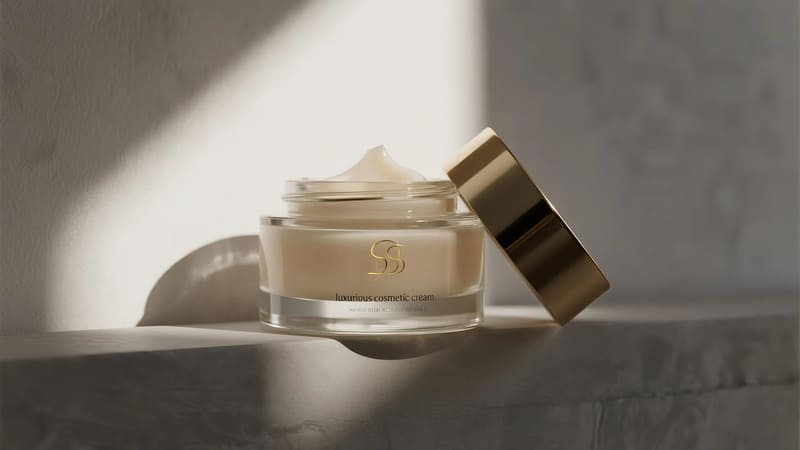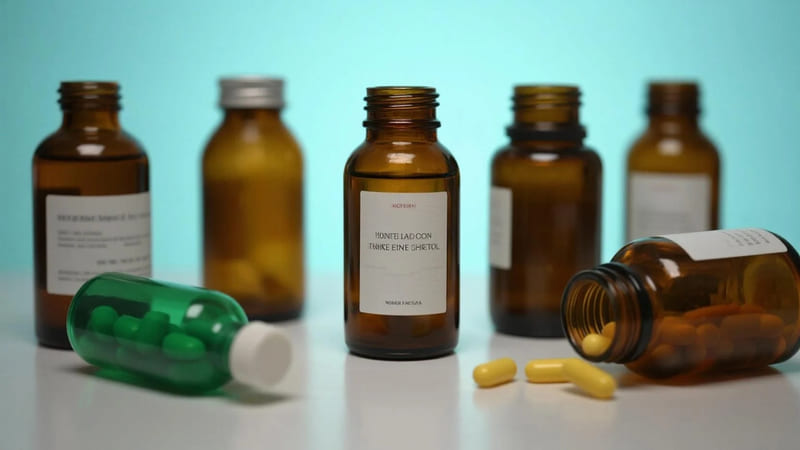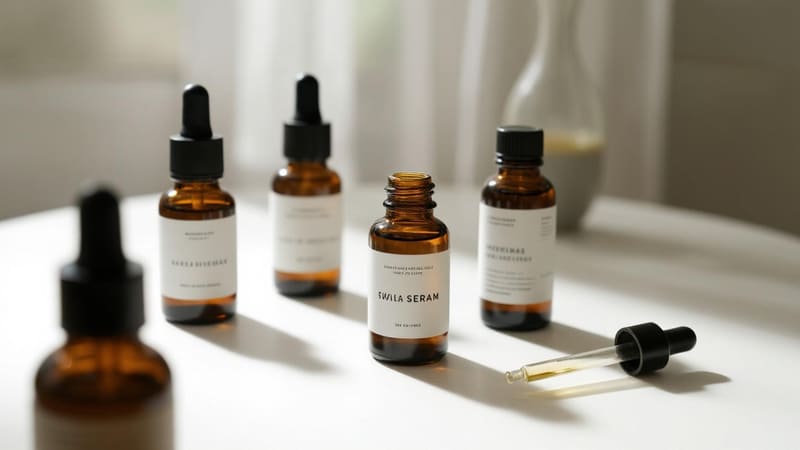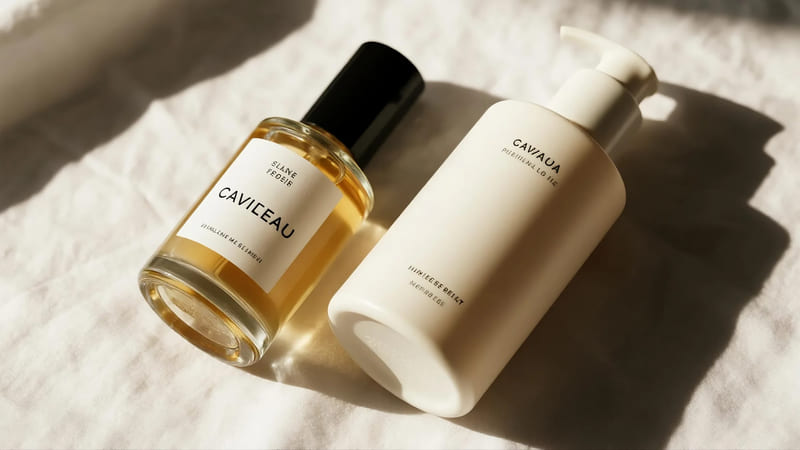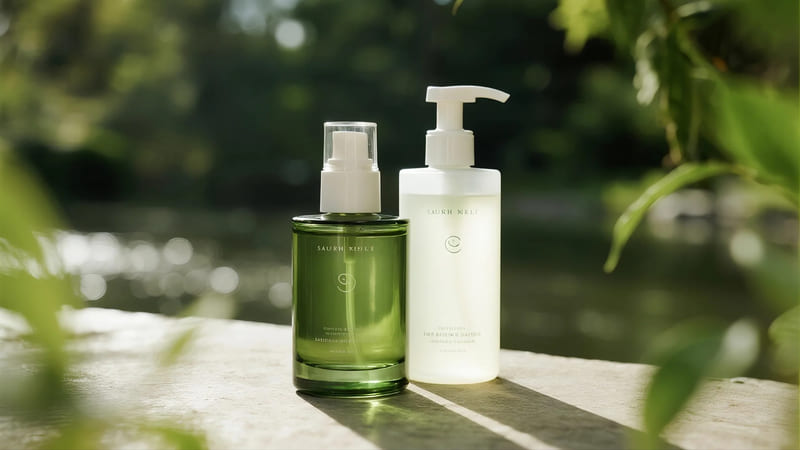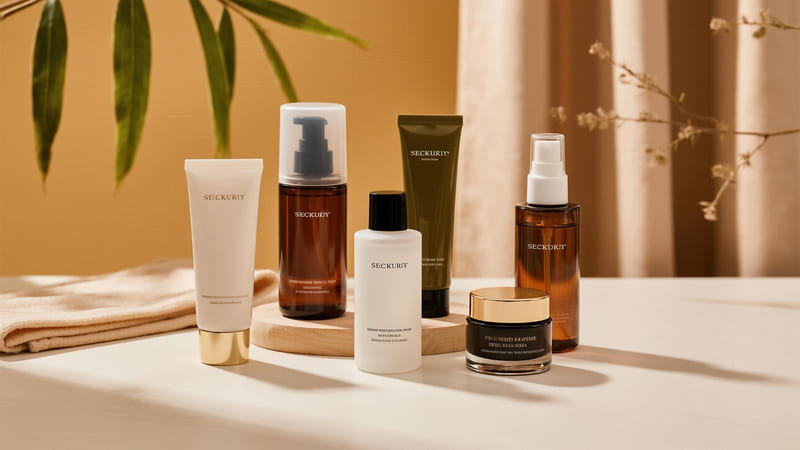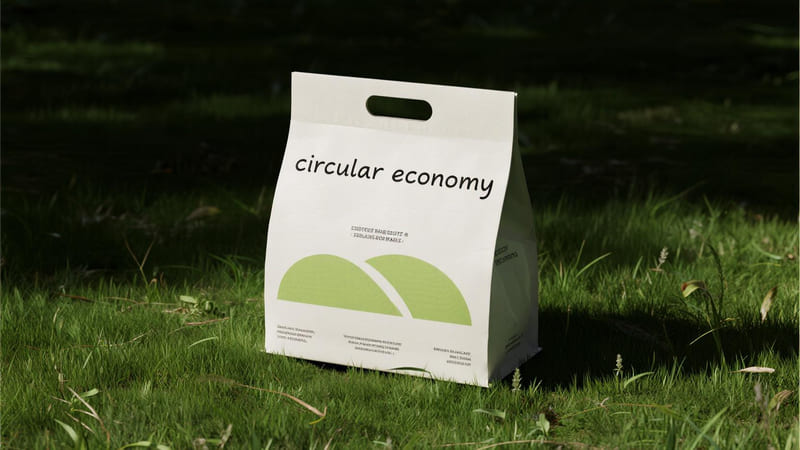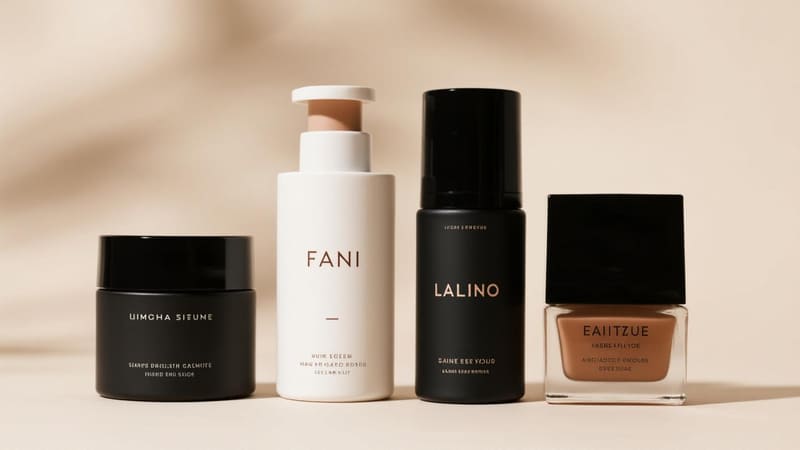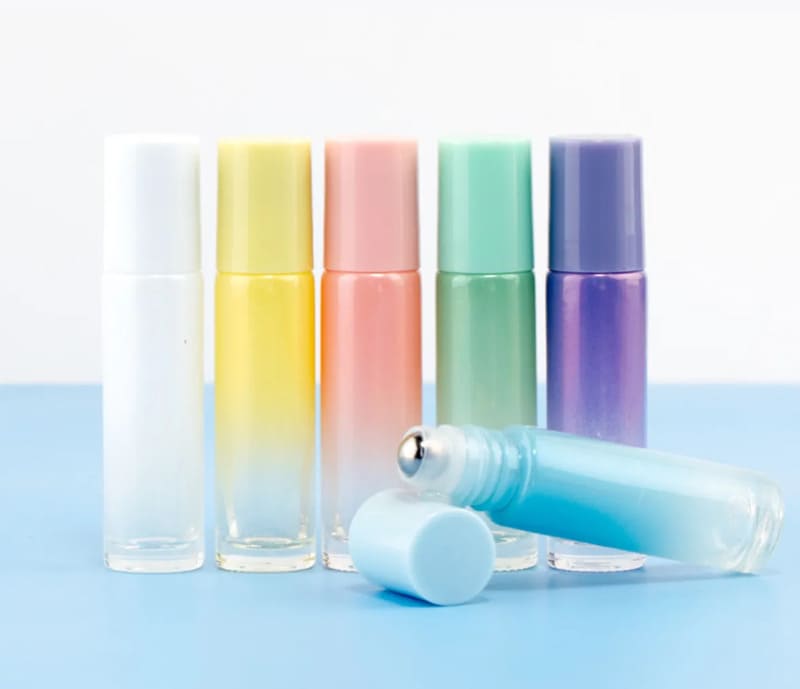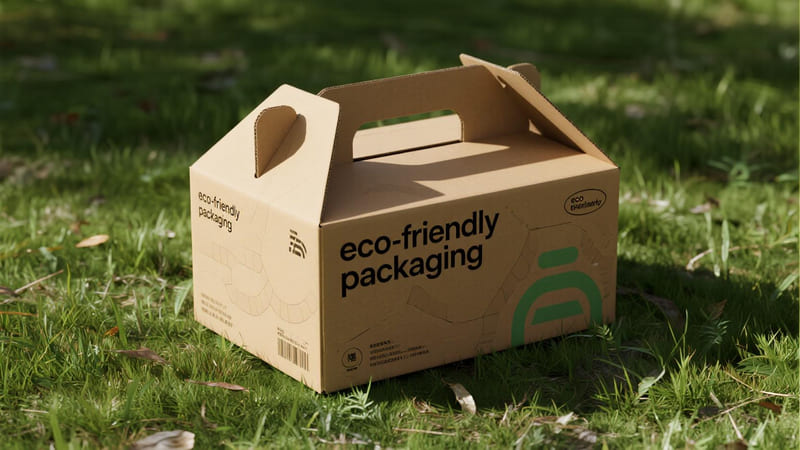When you reach for a high-end face cream, you’ll often find it housed in a substantial, elegant glass jar or bottle. This choice is far from arbitrary; it’s a deliberate decision rooted in product preservation, brand perception, and chemical stability.
Cosmetic creams, especially premium or sensitive formulations, often come in glass bottles and jars because glass is chemically inert, preventing reactions with the ingredients and preserving the formula’s integrity. It also provides an excellent barrier against oxygen and moisture, and its premium weight and feel enhance the perception of luxury and quality.
The decision to use glass is a hallmark of quality for many skincare brands. As a packaging manufacturer with ShineTop for over two decades, we’ve produced countless glass containers for cosmetic clients who understand these crucial benefits. Let’s explore why glass is a preferred choice for so many creams and other formulations.
Why Do They Put Medicine in Glass Bottles?
To understand why glass is used for cosmetic creams, it’s helpful to look at an industry where product integrity is even more critical: pharmaceuticals. The reasons for using glass in medicine directly translate to high-performance skincare.
Medicine is often put in glass bottles, particularly amber or cobalt blue glass, because glass is highly inert and non-reactive, ensuring the drug’s chemical stability and purity. It provides an excellent barrier against moisture and gases, and dark-colored glass protects light-sensitive medications from UV degradation, thus preserving their potency and extending shelf life.
The pharmaceutical industry relies on glass for its unparalleled protective qualities.
Key Reasons for Glass in Pharmaceuticals:
- Chemical Inertness: Glass (especially Type I borosilicate glass used for injectables) does not react with the chemical compounds in medications. This prevents the packaging from altering the drug’s composition or leaching unwanted substances into it.
- Impermeability: Glass forms a near-perfect barrier to oxygen, moisture, and other environmental gases that could degrade the active pharmaceutical ingredients (APIs).
- UV Protection: Amber or other dark-colored glass effectively blocks harmful ultraviolet (UV) light, which can break down light-sensitive drugs and reduce their efficacy.
- Sterilizability: Glass can withstand high temperatures, allowing for sterilization methods like autoclaving, which is essential for sterile products like injectable solutions.
- Purity & Transparency: Glass is non-porous and doesn’t absorb the drug, ensuring accurate dosing. Its transparency (even when colored) allows for visual inspection of the contents for particulates or changes.
These same principles apply to high-quality cosmetic creams, which often contain sensitive "active" ingredients that need similar protection to remain effective.
Why Do Serums Come in Glass Bottles?
Serums are often the most potent products in a skincare routine, packed with concentrated active ingredients. Their packaging must be robust enough to protect these powerful and often unstable molecules.
Serums typically come in glass bottles, often with dropper applicators, because their formulations are frequently concentrated and contain sensitive active ingredients like Vitamin C, retinol, or antioxidants. Glass protects these volatile ingredients from degradation by being inert, impermeable to oxygen, and, when colored (like amber), shielding them from UV light.
The choice of glass for serums is a direct response to the nature of their formulas.
- Protecting Active Ingredients:
- Vitamin C (L-Ascorbic Acid): Notoriously unstable and oxidizes quickly when exposed to air and light. A dark glass bottle is essential.
- Retinoids (Retinol): Also sensitive to light and air, which can reduce their potency.
- Antioxidants & Botanical Extracts: Many of these delicate compounds can be degraded by environmental exposure.
- Preventing Chemical Reactions: The high concentration of actives in serums increases the potential for reaction with less stable packaging materials like some plastics. Glass’s inertness prevents this.
- Precise Application: The common pairing of glass bottles with glass dropper pipettes allows for controlled, hygienic, and precise application of the concentrated serum.
- Premium Perception: Serums are often one of the most expensive products in a skincare line. The premium feel of glass aligns with their high value and efficacy claims.
Just like with premium creams, the packaging for serums is not just a container; it’s a crucial component of the product’s delivery system and stability plan. At ShineTop, we produce a vast number of glass dropper bottles for brands like Anna’s in Thailand, who relies on them to protect her natural serum formulations.
Why Do People Use Glass Bottles Instead of Plastic?
The choice between glass and plastic is a significant one for brands and consumers, involving trade-offs between cost, weight, durability, and perceived quality. People often choose glass for specific, compelling reasons.
People use glass bottles instead of plastic primarily for reasons of purity, preservation, premium perception, and sustainability. Glass is inert and doesn’t leach chemicals or affect taste/smell, it offers a superior barrier to preserve contents, it feels more luxurious, and it is infinitely recyclable without loss of quality.
The preference for glass stems from its inherent material properties.
Key Advantages of Glass Over Plastic:
-
Purity & Inertness:
- Glass does not interact with its contents. This is crucial for preserving the original flavor of beverages, the scent of perfumes, and the chemical integrity of skincare and pharmaceuticals. There is no risk of chemical leaching (like BPA or phthalates from some plastics).
-
Preservation & Barrier Properties:
- Glass is impermeable to gases like oxygen and moisture, keeping contents fresher for longer and protecting them from oxidation.
-
Premium Look & Feel:
- Glass has a significant weight, clarity, and tactile quality that consumers associate with high quality and luxury. This enhances the user experience.
-
Sustainability & Recyclability:
- Glass is made from abundant natural materials (sand, soda ash, limestone).
- It is 100% and infinitely recyclable. A recycled glass bottle can be turned back into a new glass bottle of the same quality, creating a true closed-loop system. While many plastics are recyclable, they are often downcycled (lose quality) and recycling rates are generally lower.
-
Temperature Resistance:
- Glass can handle a wider range of temperatures (hot-fill processes, sterilization) than most plastics.
-
Transparency:
- Allows consumers to see the product inside, which can be a sign of quality and honesty.
While plastic has advantages in being lightweight and shatter-resistant, for applications where purity, preservation, and a premium image are paramount, glass is often the preferred choice.
Is Glass Better Than Plastic for Skincare?
When it comes to skincare, the debate between glass and plastic is ongoing, with both materials having their place. However, for many types of products, especially high-end or sensitive ones, glass holds a distinct advantage.
Yes, for many skincare applications, glass is considered better than plastic because it is chemically inert (protecting formula integrity), provides a superior barrier against oxygen (preserving active ingredients), and conveys a sense of luxury and quality. While plastic offers benefits in durability and light weight, glass excels at preservation and purity.
The "better" choice depends on the specific product, brand positioning, and consumer use case.
Glass vs. Plastic in Skincare: A Head-to-Head Comparison
| Feature | Glass | Plastic | Verdict for Skincare |
|---|---|---|---|
| Product Preservation | Excellent. Inert, impermeable to oxygen. Protects sensitive actives. | Good to Fair. Can be permeable to oxygen. Potential for interaction. | Glass is superior for sensitive, high-potency, or natural formulations. |
| UV Protection | Good. Can be colored (amber, cobalt) or UV-coated for protection. | Fair. Can be made opaque or with UV inhibitors, but less common. | Dark glass is a simple and effective solution for light-sensitive products. |
| Luxury Perception | High. Weighty, premium feel. | Variable. Can range from basic to premium (e.g., acrylic), but generally perceived as less luxurious than glass. | Glass is the clear winner for luxury branding. |
| Durability | Fair. Breakable if dropped. | Excellent. Shatter-resistant, good for travel. | Plastic is better for products used in slippery environments (like the shower) or for travel. |
| Weight | Heavy. Higher shipping costs and carbon footprint from transport. | Lightweight. Lower shipping costs. | Plastic is more efficient for shipping and portability. |
| Sustainability | Excellent Recyclability. Infinitely recyclable in a closed loop. | Good Recyclability (for PET/HDPE). Often downcycled. PCR options are a major plus. | Both have pros and cons. Glass has better circularity. PCR plastic reduces virgin resource use. |
| Cost | Higher. | Generally Lower. | Plastic is more budget-friendly for mass-market products. |
Conclusion of the Comparison:
- For high-performance serums, facial oils, natural formulations with delicate preservatives, and luxury creams, glass is generally the better choice due to its superior protection and premium image.
- For body lotions, cleansers used in the shower, travel-sized products, or more budget-friendly lines, plastic (especially PCR plastic) is often a more practical and cost-effective choice.
Many brands, like our client Mohammed who creates luxury gift sets, choose glass for the hero skincare products in their collections to immediately signal quality and efficacy. The packaging choice is a direct reflection of the product’s value.
Conclusion
Cosmetic creams, particularly those in the luxury and high-performance categories, are often packaged in glass bottles and jars for compelling reasons. Glass offers unparalleled chemical inertness and barrier properties, protecting the integrity and efficacy of sensitive formulations much like it protects medicines. This, combined with its premium aesthetic and high recyclability, makes glass a superior choice for brands looking to convey quality, safety, and luxury, ensuring the customer receives the product in its most potent and pristine state.

